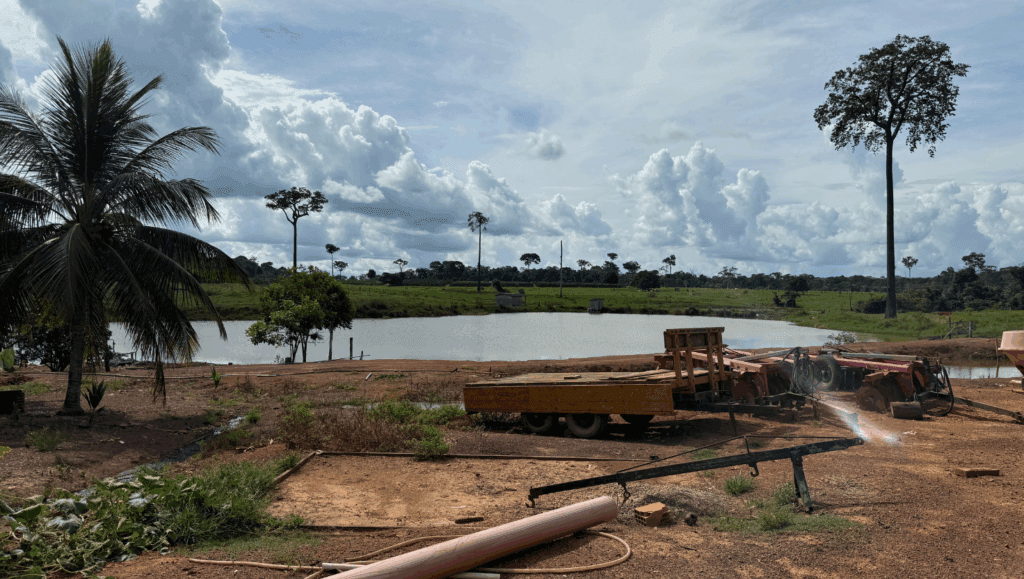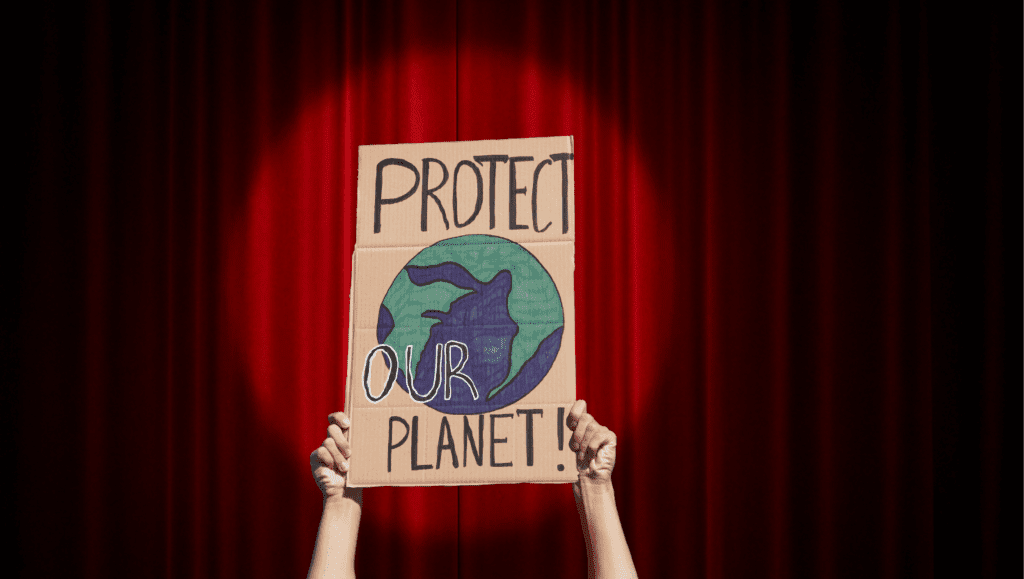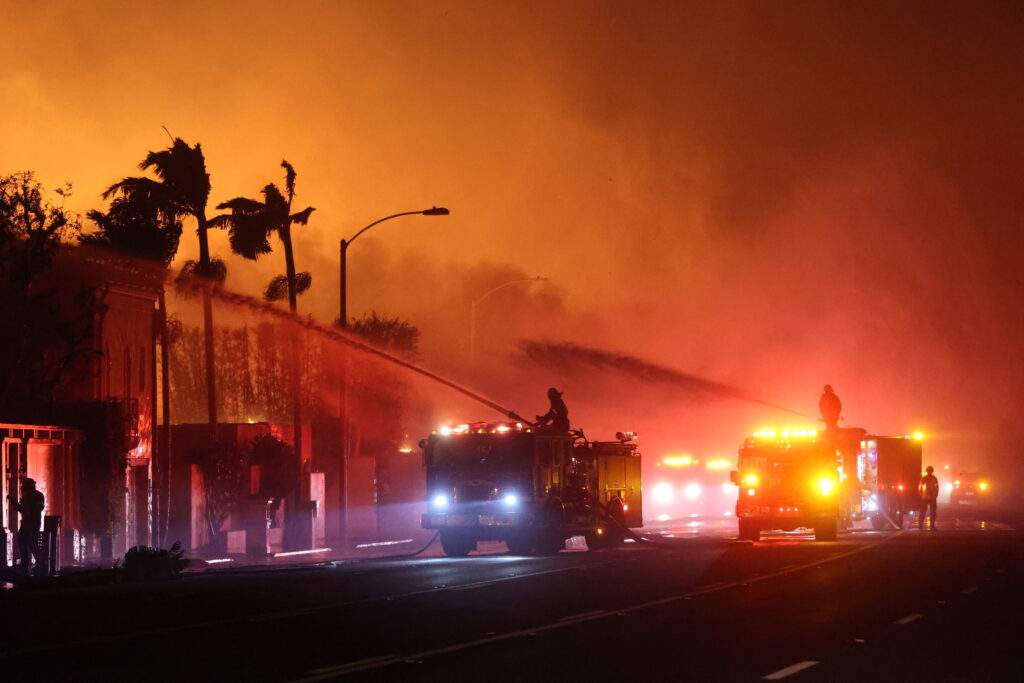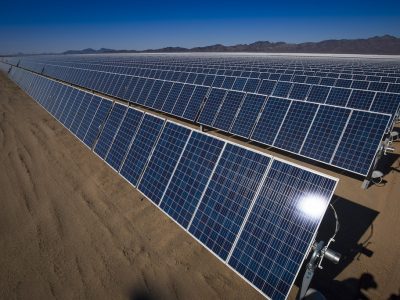Climate Change is Coming for Your Coffee
The Drain is a weekly roundup of environmental and climate news from Legal Planet.

My drug habit is becoming more expensive thanks to the dangerous duo of climate change and Donald Trump. The cost of coffee keeps going up.
I saw firsthand why this is happening back in May on an eye-opening trip to Acre, Brazil, where I toured a couple of farms in the Amazon.
One was a family farm run by Celso and Elizelda Timpurim and their kids, about 120 km outside of the city of Rio Branco. Their bucolic acreage used to be cattle ranch land, but now it’s row after row of coffee plants, patrolled by their farm doggies. All around the perimeter are existing non-fruit trees that get to live since they don’t have to be cleared for cattle grazing or logging. The state Secretary of Agriculture in Acre has encouraged the farm’s sustainability features, including intensifying production in consolidated areas. And state officials work alongside the Governors’ Climate and Forests Task Force, a UCLA project, to create jobs that don’t require clear-cutting.

Business seems good at this farm. That day in May, the family members all wore branded hats and shirts. They’re able to sell some of their beans as a higher-end roast. Rather than harvest everything by hand, they’ve invested in an impressive harvesting vehicle called the “Master Cafe” that does a lot of the hard work for them.
But all’s not well. Celso Timpurim told me that climate change is affecting his coffee farming. “I’m very concerned” is how he described, through a translator, the changes he’s seeing in his crop.

Unusual, prolonged periods of both drought and rain are confusing the plants. This means some of the coffee plants start flowering at the wrong time of year — twice a year sometimes instead of just once — which drains the energy of the plant and the fruit goes to waste, he told us. Climate change can drive up the cost and drive down efficiency. That’s only going to get worse if we don’t act.
Then there’s Trump-flation.
Coffee prices have also been rising sharply this year because of tariffs. The average price of a pound of ground coffee here was 40% higher this September than in September 2024, according to U.S. government figures. We import the vast majority of our coffee, and much of it comes from Brazil, which Trump has slapped with a 50% tariff.
The White House knows that voters care about high prices. “We want to get coffee down a little bit,” Trump told reporters last week while traveling on Air Force One. When Trump won, he thanked grocery prices for his victory. And yet average grocery prices are higher than a year ago and about 1.4% higher than they were when Trump returned to office. The important Trump tariff case will be argued tomorrow at the Supreme Court.

One of these two threats to my drug habit is more serious than the other. Trump tariffs are relatively temporary compared to the effects of the climate crisis.
Heat, drought and extreme weather have hurt coffee production around the world in recent years, resulting in a 40% surge in prices worldwide, AP reports. And it’s not just coffee at risk.
Look at farmers in Pakistan whose crops, and livelihoods, were devastated by those dramatic floods 3 years ago. Some farming districts stayed underwater for a whole year. Now, Pakistani farmers are looking for compensation from polluters. They have begun the process of taking legal action against two of Germany’s most polluting companies, the Guardian’s Isabella Kaminski reports, part of a new wave of cross-border climate damages litigation. All of this helps put things in perspective. There are disastrous climate impacts being felt by farmers and producers across the globe.
In fact, climate change is impacting many of America’s favorite foods: chocolate, rice, potatoes, orange juice and more. Somebody is already paying for the costs of climate change — and in this case it’s us — in the supermarket aisles.

Welcome to The Drain, a weekly roundup of environmental and climate news. Our song of the week is “Lost in the Supermarket” by the Clash. Here what else I see going on out there…
UN, COP30, China
Brazil’s well-known environment minister Marina Silva is urging world diplomats heading to COP30 in Belém to confront the fossil fuel question head-on. “Our heads of state must think of sending a message on topics that are certainly the causes for climate change,” Silva is quoted by Climate Home News.
UN Secretary-General António Guterres spoke to the Guardian and SUMAÚMA in his only interview before Cop30 and acknowledged it is now “inevitable” that humanity will overshoot the target in the 1.5 C Paris climate agreement, with “devastating consequences” for the world.
“We are hurtling toward climate chaos,” the 2025 State of the Climate Report begins. “The planet’s vital signs are flashing red,” with 22 of 34 planetary vital signs at record levels.
COP30 is not all about nations, though they get all the attention.
California Sen. Henry Stern is going to COP30 along with Sen. Josh Becker. Stern said during a recent Climate Center webinar that they’re going first to the Local Leaders Forum in Rio de Janeiro — a sub-national effort happening this week that “I’m most excited for frankly,” Stern said. A group of 300 mayors met yesterday in Rio, pledging to work together on climate. “Looking for friends” is how Stern put it, because UN conferences allow states and cities to hook up with other jurisdictions and push forward on climate policies, “whether it’s coordinating our emissions trading, or emissions disclosure with the Europeans… following up on MOUs with Brazil,” Stern said.
Speaking of which, my colleagues at the Governors’ Climate and Forests Task Force will be holding several UNFCCC side events and panel discussions about sub-national action at COP30 (schedule here).
Environmental groups who are sending people to COP30 in Brazil may want to take extra precautions for getting back into the country. Green groups contacted by POLITICO’s E&E News said they “felt compelled to take additional safeguards in response to moves by the Trump administration against its ideological rivals and perceived political opponents.”
Kaiser Kuo has a good read at The Ideas Letter taking stock of China and retiring the familiar framing of China Rising. “China is now shaping the trajectory of development, setting the pace economically, technologically, and institutionally,” Kuo writes. “For Americans especially, the deeper psychic shock lies in the recognition that modernity is no longer something they authored, and others merely inherit. That story has outlived its usefulness.”
Climate Leaders

Cheers to Billie Eilish who is donating $11.5 million from her current tour to The Changemaker Program, which addresses climate change and food insecurity. During a WSJ award ceremony, she challenged other rich people in the room, saying, “Love you all, but there’s a few people in here that have a lot more money than me. If you are a billionaire, why are you a billionaire? No hate, but give your money away, shorties.”
Billionaire philanthropist MacKenzie Scott (former wife of Jeff Bezos) is donating a $10 million gift announced last week to support the Woodwell Climate Research Center in Massachusetts, where scientists are studying climate solutions. And $60 million to disaster recovery in marginalized communities.
Some of the biggest names in climate science are responding to Bill Gates‘ climate memo. Covering Climate Now and Sammy Roth, are convening a live panel discussion later today with Katharine Hayhoe, Daniel Swain, and Zeke Hausfather to dissect the Gates climate memo and respond to journalists’ questions about it. RSVP here.
Some of those presiding over COP30 have been named to the TIME 100 Climate list: Brazil President Luiz Inácio Lula da Silva, European Central Bank President Christine Lagarde, Gov. Gavin Newsom, Director-General of the World Trade Organization Ngozi Okonjo-Iweala.
Also included are founder and senior director of Moms Clean Air Force Dominique Browning, Pope Leo XIV, and (F’ing right) actor Samuel L. Jackson who starred in the best, foul-mouthed climate message advertisement this year.
Sticking with lists: The 2025 Grist 50 list is out and it “highlights the work of 50 people who are making a real difference and moving the needle” despite the obvious setbacks.
The Grist list includes some Californians: Charming Evelyn of Sierra Club LA and my Legal Planet colleague Dave Jones.
The one innovator I noticed on both TIME and Grist’s list: Riley Duren, California-based founder of Carbon Mapper, the free mapping tool that observes greenhouse gas pollution and fills in gaps in existing emissions data down to the facility or equipment level.
Energy & Climate Politics
Energy companies are starting to feel the crunch of the government shutdown, according to Keith Goldberg at Law360. Scaled-back operations and new furlough announcements at EPA “threaten the approval of needed permits and the issuance of highly anticipated regulations.”
In Illinois, an energy policy package incentivizing battery storage passed the state’s General Assembly with only Democratic support and will likely become law, as Gov. JB Pritzker pledged to sign it. Senate Bill 25 — also known as the Clean and Reliable Grid Affordability Act, or CRGA — is the largest change to Illinois’ energy policy in at least four years, writes Capitol Hills Illinois.
In New York, more than a dozen Assembly Democrats sent a letter to the governor calling for a delay of new all-electric building codes. “New York is not on track to meet the 2019 climate law’s statutory emissions reduction targets,” reports Politico’s Marie J. French.
Oil company Shell pulled out of its Atlantic Shores project to develop offshore wind off the coast of New Jersey and New York, the company announced in a press release on Thursday.
Speaking of which, new research in the journal Nature Sustainability suggests that oil and gas companies own a very “marginal” share of global renewable capacity, despite all the marketing that they would lead the energy transition.
Emily Sanders writes at ExxonKnews that only .35% of the primary energy Shell produces comes from renewable sources. “The first-of-its-kind study shows that the world’s biggest oil and gas companies contribute less than 1.5% to global renewable energy — contradicting industry claims to be pioneers in the energy transition.”
In South Korea, a view of abundance: Starting this month, parking lots with more than 80 spaces will be required to install solar panel canopies and carports. “This new law doesn’t just apply to new construction – existing lots will have to comply as well!” according to Elektrek.
California and LA

California’s fire-safety ‘Zone Zero’ regulations face a Dec. 31 deadline, but state officials are likely to blow by it, reports LAT’s Noah Haggerty, “as they struggle to balance fire safety with what’s reasonable for homeowners” especially when it comes to Southern California vegetation.
A federal judge on Friday afternoon issued a preliminary injunction, ruling that California can’t enforce its Clean Truck Partnership. Large vehicle manufacturers argue that California is doing an end-run around federal law by applying heavy-duty emissions standards preempted by Congress.
Gov. Newsom’s top climate adviser Lauren Sanchez who was recently appointed to head CARB sits down with the Politico California Climate newsletter for a Q&A about the state’s fight to defend its ambitious goals from an unrelenting Trump administration. “Distinctly different from my climate advisory role, is all of the work the board is doing on clean air and air quality,” Sanchez says.
The LA Department of Water and Power board approved an $800-million conversion of two units at the Scattergood Generating Station in Playa del Rey to run on green hydrogen, Hayley Smith reports for LAT. Nearly 50 people spoke up at the meeting, with “detractors also expressing concerns about water use and pollution from burning the gas.” If successful, the conversion will be one of the country’s biggest experiments in swapping gas for hydrogen, Heatmap’s Alexander Kaufman notes.
A recent methane leak that evacuated Newport Beach residents exposes a bigger problem in California, writes CBD lawyer Cooper Kass in an LAT letter to the editor. “Nearly 90,000 unplugged oil and gas wells threaten communities across the state.”
The ATMP Roadways Project proposed for LAX would expand the roads around the airport, inducing more than 50,000 daily miles of driving, even though LAX is over-budget and behind schedule on a $3 Billion people mover that is designed to reduce the need for car rides to LAX. So there’s a campaign to stop moving forward with road expansion.
Sen. Adam Schiff is opposed to the “Fix Our Forests Act,” S. 1462, which would give the U.S. Agriculture secretary wide latitude to declare “emergency” situations on millions of acres of federal land, providing a work-around on environmental safeguards. Sen. Alex Padilla is one of the co-sponsors.
In SoCal’s Lithium Valley, Controlled Thermal Resources Holdings Inc. announced it plans a public listing of subsidiary American Critical Resources to be publicly traded on either NASDAQ or NYSE in mid-2026. Assets include the Hell’s Kitchen Project in Imperial County and three others lithium production facilities, “providing a total output of 50 megawatts of renewable electricity and approximately 100,000 metric tons annually of lithium carbonate.”
Trump administration
A November 11 deadline is looming for Colorado River water negotiators to reach consensus on a plan for managing the river water that seven states share. Trump’s Interior Department and Bureau of Reclamation have threatened to make decisions if the states can’t.
But here’s your monthly reminder that the Bureau of Reclamation actually has the legal authority to stop the waste of Colorado River water in Lower Basin states, including California, and hasn’t used that authority. My UCLA colleagues filed a petition earlier this year making that clear. They called on the Trump administration to take action.
Negotiators are back at the negotiating table in Las Vegas, and they “are more optimistic than they have been in months that they can slap together something that could get them through the immediate deadline,” Annie Snider reports.
E&E News’ Kevin Bogardus has the play-by-play on Trump EPA officials’ retribution campaign against workers who spoke up about the direction of the agency and designed to silence dissent. “I have screen shots of every name on my phone,” Michael Molina, the top political appointee in the Office of Mission Support, said in emails.
Meet Forrest Smith, the sole National Park Service employee who was responsible for cleaning up dozens of abandoned oil and gas wells at national parks across the country. He was just let go, reports Maxine Joselow.
EPA Administrator Lee Zeldin has reportedly retreated from plans to eliminate the popular Energy Star efficiency program. The New York Times says he is weighing several options for preserving it. Killing it would be dumb given that Energy Star has helped households and businesses save more than $40 billion annually in energy bills, according to the federal government.
Air monitors installed at some dirty industrial facilities showed far higher emissions than the estimates, records viewed by ProPublica show. This is important to know now because the Trump administration has since halted rules requiring more than 130 industrial plants to install such air monitors and comply with new emission standards.
Media News

The new CBS has gutted its climate team, which was unusually strong for a TV newsroom. Sammy Roth first reported on the devastation at Climate-Colored Googles and looked at how new editor-in-chief Bari Weiss has long promoted climate change skepticism at her Free Press.
More stories followed. “As Hurricane Melissa raced toward Jamaica on Monday, CBS News senior coordinating producer Tracy Wholf sent an email to the newsroom, detailing the historic storm’s scientific connection to climate change,” Emily Atkin reports for HEATED. “Wholf usually sent emails like this in the wake of deadly extreme weather events… It was also the last.”
Having a coordinating producer or editor who thinks holistically about the climate science connection across several beats is smart journalism. In fact, it’s an antidote to the very problem I wrote about last week at the LA Times. Our survey of 610 stories found that 86% of the newsroom’s stories about the January 2025 fires were silent on climate change.
Grist has launched a new, year-long series called Vital Signs to examine “the impact of a warming planet on human health” with reporting from five continents. It’s led by Zoya Teirstein, who starts with an in-depth look at Valley Fever. Each story aims to have a local partner to help reach audiences directly impacted by these health risks. Smart.







Reader Comments